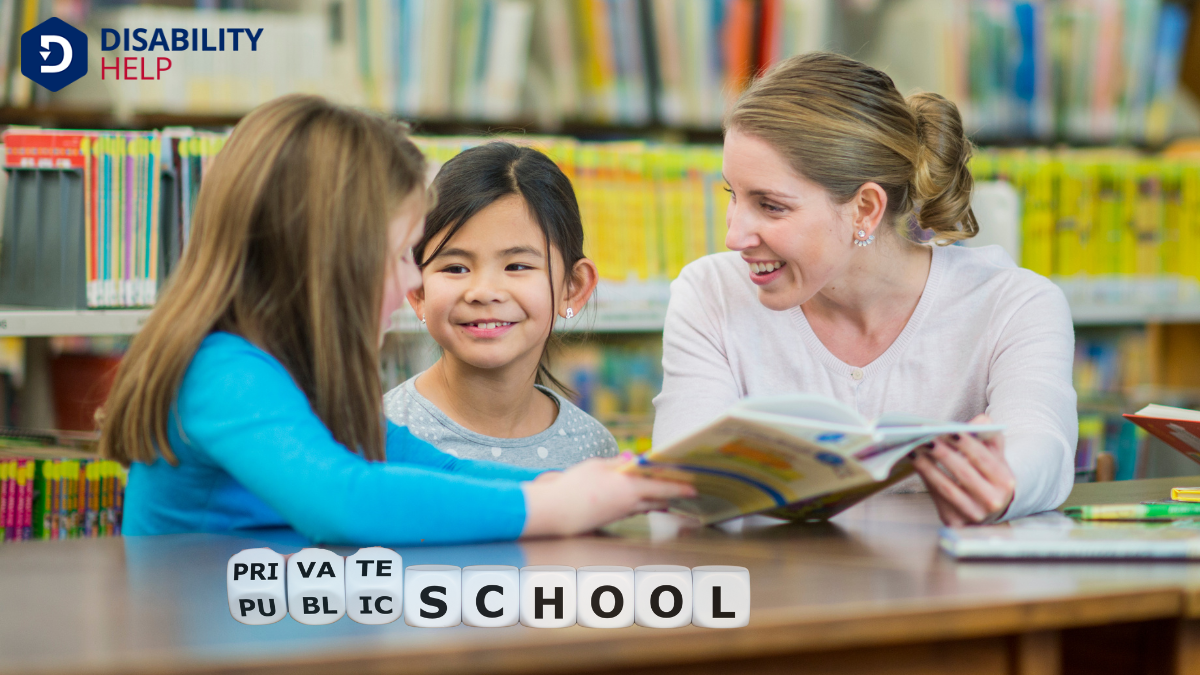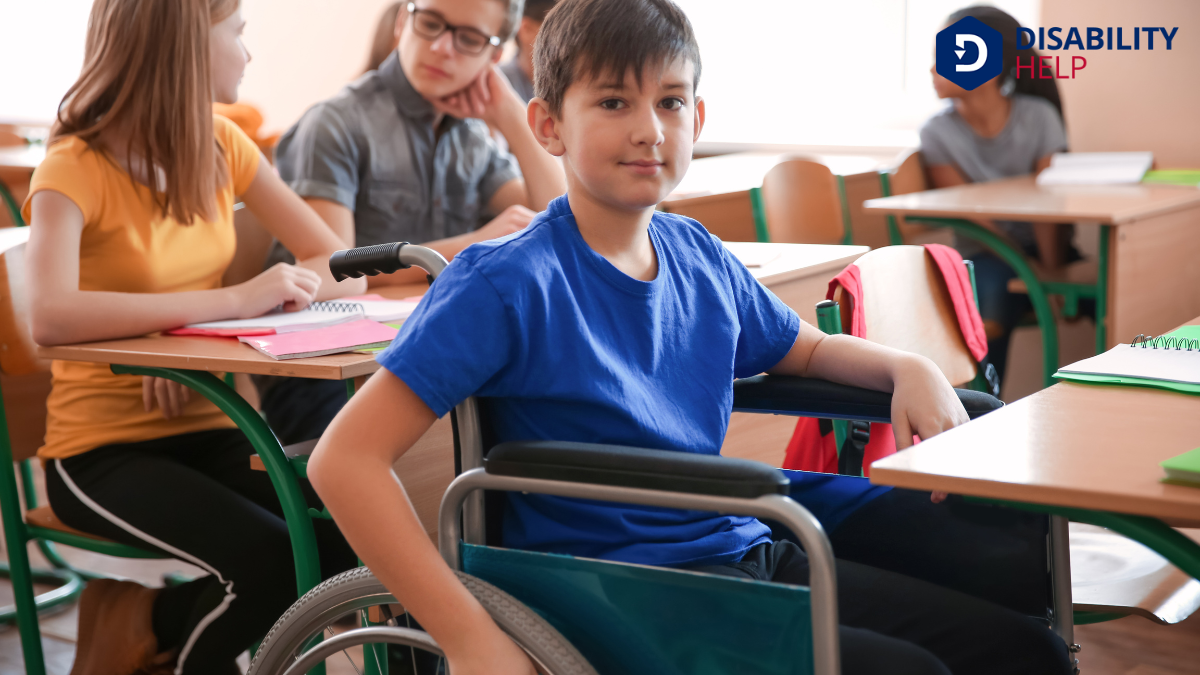Let's explore the intriguing question of whether private schools must accommodate students with disabilities. While public schools follow strict laws like the Individuals with Disabilities Education Act (IDEA), private schools have different obligations. They're not entirely off the hook, though. Laws like the Americans with Disabilities Act (ADA)A U.S. law that prohibits discrimination against individuals with disabilities in all areas of publi... and Section 504A provision of the Rehabilitation Act of 1973 that prohibits discrimination based on disability in p... still apply, demanding reasonable accommodationsModifications or adjustments in healthcare settings to support patients with disabilities.. But what does this mean in practice, and how does it impact families?
Key Takeaways
- Private schools must comply with ADA and Section 504, ensuring equal accessThe principle that all individuals, including those with disabilities, should have equal opportunity... for students with disabilities.
- Private schools are not bound by IDEA unless they accept federal funding.
- Reasonable accommodations are mandated under the ADA for accessibilityThe design of products, devices, services, or environments to be usable by people with disabilities.... in private schools.
- Resource availability for accommodations in private schools can vary depending on funding sources.
- Parents should research specific private school policies on disability support before enrollment.
Understanding the Legal Framework for Private Schools
When exploring the legal framework for private schools, it’s crucial to recognize the unique regulatory environment they operate within, distinct from public schools.
We need to understand that these schools often have different legal obligations, especially in relation to accommodating students with disabilities. Private schools aren't bound by the same federal mandates as public schools, such as the Individuals with Disabilities Education Act (IDEA).
However, they must comply with Section 504 of the RehabilitationThe process of helping individuals with disabilities achieve and maintain their optimal physical, se... Act and the Americans with Disabilities Act (ADA), which prohibit discrimination based on disability.
Let's keep in mind that while private schools have some flexibility, they must guarantee that students with disabilities have equal access to educational opportunities.
This framework can vary, so understanding specific obligations can help us navigate this complex landscape.
Key Differences Between Public and Private School Obligations

As we explore the key differences between public and private school obligations, we'll notice how the legal frameworks set distinct expectations for each.
Public schools must adhere to federal laws like IDEA, ensuring specific services and accommodations, while private schools have more flexibility but often limited resources.
This flexibility also affects enrollment policies, which can greatly impact students with disabilities.
Legal Framework Differences
Although the commitment to educating students with disabilities exists in both public and private schools, the legal obligations they face differ markedly.
Public schools are bound by the Individuals with Disabilities Education Act (IDEA), requiring them to provide a Free Appropriate Public Education (FAPE) tailored to each student's needs. This act mandates individualized education plans (IEPs) and other supports.
In contrast, private schools aren't obligated under IDEA. Instead, they're subject to Section 504 of the Rehabilitation Act and the Americans with Disabilities Act (ADA), which require them to make reasonable accommodations for students with disabilities.
However, these accommodations often aren't as extensive as those in public schools. We must understand these differences to better navigate educational choices for students with disabilities.
Funding and Resources
Funding and resources represent a significant distinction between public and private schools in their obligations to students with disabilities. Public schools receive federal and state funding, which mandates compliance with laws like the Individuals with Disabilities Education Act (IDEA). This funding helps cover specialized services and accommodations.
In contrast, private schools often rely on tuition and private contributions, limiting their resources. They aren't bound by IDEA unless they accept federal funds, which means they may not provide the same level of support.
It's essential for us to reflect on these differences when evaluating a school's ability to accommodate students with disabilities. Understanding this can help us navigate our choices and advocate effectively for the resources and support students need in various educational environments.
Enrollment Policies Impact
When examining the enrollment policies of public and private schools, we uncover key differences in their obligations to students with disabilities.
Public schools must adhere to the Individuals with Disabilities Education Act (IDEA), ensuring that every student receives a free appropriate public education tailored to their needs. They’re legally bound to provide necessary accommodations and support services.
In contrast, private schools don’t have the same mandate. While some private institutions willingly offer support and resources, they aren’t required by federal law to do so. This can lead to varied experiences for students with disabilities depending on the private school they attend.
As parents and guardians, it’s essential for us to thoroughly research and ask questions about a private school’s specific policies before enrollment.
The Role of the Americans With Disabilities Act (ADA)
Since its enactment, the Americans With Disabilities Act (ADA) has considerably shaped how private schools accommodate students with disabilities.
It's understood that the ADA mandates that private schools provide reasonable accommodations to guarantee accessibility for students with disabilities, unless it creates an undue burden or fundamentally alters the nature of the program. This means private schools must examine their facilities, policies, and practices to identify and remove barriers where possible.
We should remember that the ADA applies differently depending on the type of private school. For example, schools that are religiously affiliated might be exempt from some ADA requirements.
However, understanding the ADA's role helps us appreciate the steps schools must take to foster an inclusive environment, ensuring all students have equal access to education.
How Section 504 of the Rehabilitation Act Applies
While the ADA plays a significant role in guaranteeing accessibility, Section 504 of the Rehabilitation Act provides additional protections that we should understand. This section prohibits discrimination based on disability in programs or activities receiving federal financial assistance.
Here's how it applies to private schools:
- Federal Funding: If a private school receives any federal funding, it's obligated to comply with Section 504. This includes providing reasonable accommodations for students with disabilities.
- Non-Discrimination: Schools can't exclude a student solely due to their disability if they qualify for the program or activity.
- Equal Access: Schools must guarantee that students with disabilities have equal access to educational opportunities, which can mean modifying policies or practices to accommodate their needs.
Understanding these aspects helps us guarantee compliance and support for all students.
Types of Accommodations Commonly Provided

As we explore the accommodations for students with disabilities in private schools, let's focus on two key areas: classroom environment adjustments and specialized educational tools.
These modifications can make a significant difference in a student's learning experience by creating a more accessible and supportive setting.
We'll examine how these accommodations work and the impact they've on fostering an inclusive educational environment.
Classroom Environment Adjustments
When it comes to creating an inclusive learning environment for students with disabilities in private schools, we must consider a variety of classroom environment adjustments.
These adjustments can greatly enhance the learning experience and guarantee equal opportunities for all students. Here are some common accommodations:
- Seating Arrangements: We can arrange desks to minimize distractions and allow easier access for students who use mobility aidsDevices designed to help individuals move around more easily, such as canes, walkers, or wheelchairs....
- Lighting and Acoustics: Adjusting lighting to reduce glare and using soundproof materials can help students with sensory sensitivities focus better.
- Visual Aids: Incorporating visual aids like charts and diagrams can support students who benefit from visual learning cues.
Specialized Educational Tools
To effectively support students with disabilities in private schools, we must provide specialized educational tools that cater to their unique needs. These tools guarantee every student can access the curriculum and engage meaningfully.
For instance, text-to-speech software helps students with reading difficulties by converting written text into spoken words. Similarly, speech-to-text programs empower those with writing challenges, allowing them to verbalize thoughts that are then transcribed. Visual aids, such as graphic organizers, assist students in structuring information logically.
We also consider assistive listening devices for hearing-impaired students, which amplify sound directly to them. By integrating these tools, we create an inclusive learning environment that respects and celebrates diversityThe inclusion of individuals from a wide range of backgrounds, including people with disabilities..
Let's be proactive in identifying and implementing the right solutions for our students.
Potential Challenges and Barriers in Private Schools
Steering through the landscape of private education for students with disabilities often presents unique challenges and barriers. We must consider several factors that can impact our children's learning experiences.
- Limited Resources: Private schools may not have the same level of funding as public institutions, which can affect their ability to provide necessary accommodations.
- Lack of Specialized Staff: Some private schools mightn't employ staff trained specifically to support students with disabilities, leading to inadequate support.
- Accessibility Concerns: Many private schools are housed in older buildings without the infrastructure to support mobility needs, creating physical barriers.
Navigating Educational Choices for Children With Disabilities
How do we make the best educational choices for our children with disabilities in a world of diverse schooling options?
First, we need to understand our child's unique needs and strengths. It's essential to research schools that offer specialized support and inclusive environments. Public schools, bound by IDEA, must provide free appropriate public education.
Private schools, however, aren't always required to accommodate disabilities unless they receive federal funding.
We should visit schools, ask questions about their resources, and observe their approach. Connecting with other parents can provide valuable insights.
Ultimately, it's about finding a setting where our child feels supported and can thrive. Together, we can navigate these options and make informed decisions that prioritize our children's educational success.
Frequently Asked Questions
Are Private Schools Eligible for Federal Funding for Disability Accommodations?
Let's explore federal funding for private schools' disability accommodations. They aren't typically eligible, as public funding mainly supports public institutions. However, some grants or programs might offer limited assistance. It's essential that we comprehend each school's specific situation.
Do Private Schools Have Specialized Staff for Students With Disabilities?
We’re exploring whether private schools employ specialized staff for students with disabilities. It’s vital to understand this as it directly impacts the support available. While some schools hire specialists, others might not, depending on resources and priorities.
Can Private Schools Deny Admission Based on Disability?
We can explore whether private schools can deny admission based on disability. Generally, they have more discretion than public schools, but they can't discriminate outright. It's important to examine each school's policies and applicable state laws.
How Are Private Schools Held Accountable for Disability Accommodations?
Let's explore how private schools guarantee they accommodate students with disabilities. They often follow state or federal guidelines, but policies differ widely. We should inquire directly with schools about their specific accountability measures and support services.
Are Private School Teachers Trained in Special Education?
We often wonder if private school teachers receive special educationCustomized educational programs designed to meet the needs of students with disabilities. training. While it's not always mandated, many private schools prioritize this training. Let's explore how individual school policies and professional development opportunities can impact teacher preparedness.
Conclusion
In understanding the landscape of private school accommodations for students with disabilities, we’ve navigated the legal framework and highlighted the key differences from public schools. Private schools must adhere to ADA and Section 504 standards, guaranteeing some level of support. However, the extent of accommodations can vary. As we weigh educational choices, let’s remember the importance of advocating for the needs of children with disabilities to guarantee they receive the necessary support for their educational success.






